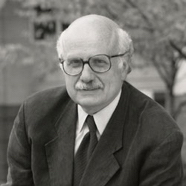“Follow The Money.”
Fred Wertheimer’s Weekly Note | March 17, 2022

The most well-known quote to come out of the 1970s Watergate scandals is, “Follow the money.”
While the actual origin of the quote is not clear, its meaning is: To understand the ways of Washington you must look at the impact of money on the actions that are taken.
In January, two Democratic Senators, Kyrsten Sinema (AZ) and Joe Manchin (WV), played a pivotal role in killing the most consequential democracy reform legislation since the Watergate scandals.
The Freedom to Vote: John R. Lewis Act included transformational reforms to protect the right to vote, combat the corrupting influence of money in Washington, and prevent partisan gerrymandering in congressional districts.
So, let’s follow the money in two recent stories about Senators Sinema and Manchin.
An upcoming book by New York Times reporters Jonathan Martin and Alexander Burns tells us Senator Sinema knows exactly which side her bread is buttered on.
While she used the Democratic label and Democratic voters to win her Senate seat, her actions often belie the interests of the constituents she purports to represent. (Polling showed that 66 percent of Arizona voters supported the Freedom to Vote Act that Sinema helped kill.)
According to Axios, the book reports that, at a Republican-heavy lobbyist fundraising event, Sinema “portrayed herself as anti-tax and anti-government” to Republican lobbyists who were no doubt “anti-tax and anti-government” themselves. That’s not, however, the position of the party whose label she uses. Sinema also reportedly praised House Republican leader Kevin McCarthy and mocked Democratic President Biden.
The book also reports, according to Vanity Fair, that at a critical time during negotiations over Biden’s Build Back Better legislation, which Sinema along with Manchin were blocking, Sinema left Washington to raise political money from business and corporate interests working against Biden’s agenda.
Sinema ended up never supporting the Build Back Better legislation.
As the Watergate scandals remind us, “Follow the money.”
As reported by The New Republic, Senator Manchin founded coal companies in the 1980s that are now controlled by his son. Manchin, however, reportedly maintains a substantial ownership stake in the companies through a blind trust and receives substantial benefits from them. In a recent year, for example, Manchin reportedly received some three times his Senate salary ($174,000) in dividends from these companies. Since 2010 when he first came to the Senate, Manchin has received more than $4.5 million.
Senator Manchin is also the powerful Chair of the Senate Energy Committee with oversight and legislative responsibilities for the nation’s coal policies. Given Manchin’s substantial coal financial interests, every significant coal issue that comes before his committee creates a potential conflict of interest for Manchin.
Manchin reportedly is the Senate’s leading recipient of contributions from oil, coal, and gas interests. Between July and October 2021 alone, he raised more than $400,000 from fossil fuel interests.
Manchin made clear his views about the role political-influence money should play in Congress.
Appearing before a group of fossil fuel executives this month, Manchin urged them to seek a “return on investment” from the officeholders who seek their contributions.
That’s a euphemism for advising the corporate executives to use their contributions to buy influence and results from Members of Congress. This is coming from the Senator who receives more of these “investments” from fossil fuel executives and their corporate PACs than any other Senator.
As the Watergate scandals remind us, “Follow the money.”
Political money corrupts. Campaign contributions today come predominantly from influence-seeking billionaires, millionaires, lobbyists, corporate executives, lobbyists, bundlers, Super PACs, special-interest PACs, and nonprofit “dark money” groups.
These recent reports of Senators Sinema’s and Manchin’s interactions with influence-money donors illustrate the problem. We will never get rid of the corrupting role of campaign money in Congress until we enact a small donor financing, public matching funds system for congressional races.
The Freedom to Vote: John R. Lewis Act – the legislation that Senators Sinema and Manchin played a central role in killing in January – would have begun this transformation by creating a small donor financing system for House races.
Until reform is enacted, the Watergate scandals are here to remind us: “Follow the money.”
________________________
Fred’s Weekly Note appears each Thursday in Wertheimer’s Political Report, a Democracy 21 newsletter. Read this week’s newsletter here. Or, subscribe for free here and receive your copy each week via email.